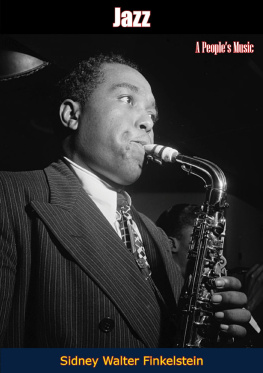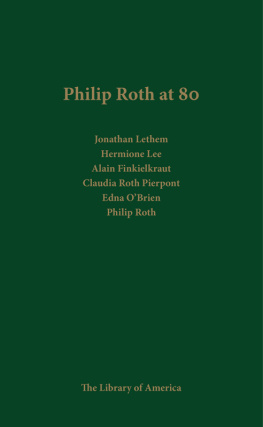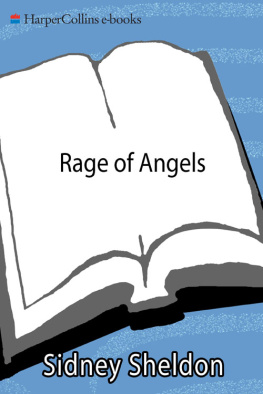Sidney Philip - Philip Sidney and the Poetics of Renaissance Cosmopolitanism
Here you can read online Sidney Philip - Philip Sidney and the Poetics of Renaissance Cosmopolitanism full text of the book (entire story) in english for free. Download pdf and epub, get meaning, cover and reviews about this ebook. City: London, year: 2016;2008, publisher: Taylor and Francis, genre: Detective and thriller. Description of the work, (preface) as well as reviews are available. Best literature library LitArk.com created for fans of good reading and offers a wide selection of genres:
Romance novel
Science fiction
Adventure
Detective
Science
History
Home and family
Prose
Art
Politics
Computer
Non-fiction
Religion
Business
Children
Humor
Choose a favorite category and find really read worthwhile books. Enjoy immersion in the world of imagination, feel the emotions of the characters or learn something new for yourself, make an fascinating discovery.

- Book:Philip Sidney and the Poetics of Renaissance Cosmopolitanism
- Author:
- Publisher:Taylor and Francis
- Genre:
- Year:2016;2008
- City:London
- Rating:4 / 5
- Favourites:Add to favourites
- Your mark:
- 80
- 1
- 2
- 3
- 4
- 5
Philip Sidney and the Poetics of Renaissance Cosmopolitanism: summary, description and annotation
We offer to read an annotation, description, summary or preface (depends on what the author of the book "Philip Sidney and the Poetics of Renaissance Cosmopolitanism" wrote himself). If you haven't found the necessary information about the book — write in the comments, we will try to find it.
Sidney Philip: author's other books
Who wrote Philip Sidney and the Poetics of Renaissance Cosmopolitanism? Find out the surname, the name of the author of the book and a list of all author's works by series.
Philip Sidney and the Poetics of Renaissance Cosmopolitanism — read online for free the complete book (whole text) full work
Below is the text of the book, divided by pages. System saving the place of the last page read, allows you to conveniently read the book "Philip Sidney and the Poetics of Renaissance Cosmopolitanism" online for free, without having to search again every time where you left off. Put a bookmark, and you can go to the page where you finished reading at any time.
Font size:
Interval:
Bookmark:
PHILIP SIDNEY AND THE POETICS OF RENAISSANCE COSMOPOLITANISM
To Denise Matt Tope
who could see virtue would be wonderfully ravished with the love of her beauty Philip Sidney
ROBERT E. STILLMAN
University of Tennessee, USA
ASHGATE
Robert E. Stillman 2008
All rights reserved. No part of this publication may be reproduced, stored in a retrieval system or transmitted in any form or by any means, electronic, mechanical, photocopying, recording or otherwise without the prior permission of the publisher.
Robert E. Stillman has asserted his moral right under the Copyright, Designs and Patents Act, 1988, to be identified as the author of this work.
Published by
Ashgate Publishing Limited
Gower House
Croft Road
Aldershot
Hampshire GU11 3HR
England
Ashgate Publishing Company
Suite 420
101 Cherry Street
Burlington, VT 05401-4405
USA
Ashgate website: http://www.ashgate.com
British Library Cataloguing in Publication Data
Stillman, Robert E., 1954
Philip Sidney and the poetics of Renaissance cosmopolitanism
1. Sidney, Philip, Sir, 15541586 Criticism and interpretation 2. Sidney, Philip, Sir, 15541586. Apologie for poetrie 3. Sidney, Philip, Sir, 15541586 Political and social views 4. Sidney, Philip, Sir, 15541586 Knowledge Poetry 5. Politics and literature England History 16th century 6. Literature and society England History 16th century 7. Literature and morals 8. Cosmopolitanism in literature
I. Title
808.1
Library of Congress Cataloging-in-Publication Data
Stillman, Robert E., 1954
Philip Sidney and the poetics of Renaissance cosmopolitanism / Robert E. Stillman.
p. cm.
Includes index.
ISBN 978-0-7546-6369-0 (alk. paper)
1. Sidney, Philip, Sir, 15541586Criticism and interpretation. 2. Sidney, Philip, Sir, 15541586. Apologie for poetrie. 3. Sidney, Philip, Sir, 15541586Political and social views. 4. Sidney, Philip, Sir, 15541586KnowledgePoetry. 5. Politics and literatureEngland History16th century. 6. Literature and societyEnglandHistory16th century. 7. Literature and morals. 8. Cosmopolitanism in literature. I. Title.
PR2343.S78 2008
808.1dc22
2007037447
ISBN: 978-0-7546-6369-0
ISBN: 978-1-4094-7502-6 (ebk-ePUB)
Printed and bound in Great Britain by TJ International Ltd, Padstow, Cornwall.
Sidneys Defence of Poesy is the first early modern work to argue for the preeminence of fiction-making as an autonomous form of knowledgea form of knowledge indispensable to the well-being of the public domain. At the core of its argument is Sidneys assumption that all government of action is to be gotten by knowledge, and knowledge best by gathering many knowledges, which is by reading. Reading is intellectual travel. Knowledge is wide familiarity with those many serving sciences (knowledges) necessary for the government of self and society, and poetry, in turn, the superior human science, as the full scope of Sidneys argument maintains, because of its zodiacal range, the cosmopolitanism of its studied inclusiveness.
Sidneys travels on the Continent help to explain why and how he advances such an argument, as provocative and original then as it appears audacious now. Between 1572 and 1575between his first-hand experience of the St. Bartholomews Day Massacre and his return to England to attempt a pubic careerSidneys education was entrusted to a group of so-called Philippists, the followers of Philip Melanchthon. The three central chapters of this book measure the impact of that education on the Defences poetics, piety, and politics. That impact, I will maintain from the start, was nothing short of determinative. It determined how Sidney came to conceive of government as indispensably allied both to knowledge and to reading, and how poetryas the best of all forms of discoursecame to be conceived, in the aftermath of the St. Bartholomews Day Massacre, as the urgently required means of securing the pious and political goals of his Philippist education.
This study begins not with an account of Sidneys pious or political principles and their pre-history among the Philippists. It starts instead, appropriately for an examination of Sidneys celebration of poetry as the preeminent vehicle of knowledge in the public domain, with an account of his hermeneutic conceptswith those operative principles about reading and writing that determine his understanding of fiction-making. Such an account is appropriate because competing vehicles of knowledge, the sciences of history or philosophy, physics or metaphysics, are conceived by Sidney as competing forms of discourse, and poetry achieves its preeminence ultimately and most importantly because it represents, within this war among the muses, discourse operating at the height of its potential. Poetics matters first because it is only by means of understanding Sidneys claims for the value of fiction-making that it is possible to understand simultaneously his assertiveness about its agency in the public domain, and the weight of his consciousness about the crisis of public life in motivating those assertions.
Recovering Sidneys assumptions about reading and writing comprises a necessary challenge to increasingly familiar claims about the so-called allegorical character of his poetry and poetics. The history of that tradition is provided by an examination of the lineage of Sidneys key critical term, the scopus dicendi, its origin in Aristotles Rhetoric, its employment in the anti-allegorical exegesis of the Antiochene fathers, its appearance in conjunction with the newly emergent concept of literary text as literary microcosm among the neoplatonists of the Hellenic age, and its purposeful redeployment in the pointedly non-allegorical hermeneutic of Melanchthon. By comparison with contemporary Spenser studies, Sidney studies is under-theorized and under-historicized, and the recovery of the history of hermeneutics to which his exemplary poetics belongs is critically overdue. Only in light of that recovery is it possible to understand Sidneys account about how a poemconceived as a particular kind of fictional world created by a particular kind of oratorical inventionachieves its power.
The scope of Sidneys argument in the Defencehis main aim or target in identifying the source of poetrys preeminenceappears most clearly in his description of the poets making of the golden world. As a reflection of his own assumptions about the world at large, the golden world is the methodically conceived imitation, counterfeit, and figuration of the Makers own prelapsarian creation, the world itself. Like the world, Sidneys fiction has its own maker (an analogue to the divine Maker), its own laws (the logic internal to its organization), and its own natural power (as the representation of Ideas that speak clearly about human nature and human needs). Once more, it has its own purpose, aim, or scopeits cause for being (to have readers accommodate themselves to the makers intention). As the matter out of which Sidney forms his conception of fiction as a well-made world, these are key concepts that transform the Defences well-known engagement with Italian poetics into an argument with scope. Sidneys ideas about poetic eloquence, including his several assumptions about readinghis concern with intentionality, clarity, coherence, and the all-important business of accommodationshare the optimism about eloquence that informs Melanchthons oratorical texts. They include Melanchthons regard for logic, his insistence that rhetoric be subjected to analysis of a rigorously dialectical kind. They depend, too, on a shared epistemology of innate ideasthe
Next pageFont size:
Interval:
Bookmark:
Similar books «Philip Sidney and the Poetics of Renaissance Cosmopolitanism»
Look at similar books to Philip Sidney and the Poetics of Renaissance Cosmopolitanism. We have selected literature similar in name and meaning in the hope of providing readers with more options to find new, interesting, not yet read works.
Discussion, reviews of the book Philip Sidney and the Poetics of Renaissance Cosmopolitanism and just readers' own opinions. Leave your comments, write what you think about the work, its meaning or the main characters. Specify what exactly you liked and what you didn't like, and why you think so.











